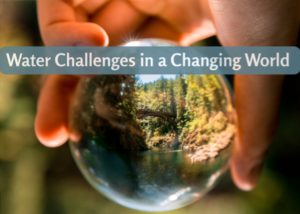
Water Challenges in a Changing World Theme
Our research is divided into 3 main research areas: 1. Adaptation and Resilience; 2. Water Security; 3. Local Solutions, Global Context. These each cover a range of physical and theoretically lead streams of research. To develop and establish more interdisciplinary and international links to these priority areas the Water Challenges in a Changing World theme was founded in the Institute for Global Innovations. The Water Challenge theme is developing upon the existing priority areas which now has 5 specific work streams to divide projects into. These are Water Technology, Water and Health, Water Resources Under Change, Water Pollution, Water Justice and Socio-economic Consequences. They more accurately represent the water related research at the University of Birmingham which is now tied together as the Birmingham Water Council.
Research Streams
Listed are the research streams led by Professor Stefan Krause.

Water Technology
The highly dynamic and often non-linear behaviour of hydrological processes pose critical challenges to understanding, monitoring, and protecting water resources and environments. Successfully tackling water-related global challenges requires technological innovation. Hence, a main emphasis of this work-stream is on the development of analytical and sensor (network) technologies that support unprecedented high frequency and high resolution monitoring of hydrological and hydro-chemical processes in natural, rural and urban systems, including the build environment (utilising EPS Buried Infrastructure and LES EcoLab and BIFoR facilities as unique testbeds). In addition to the development of innovative experimental technologies, the work-stream focuses on advancing hydrological modelling capabilities to improve the predictive capacity of anticipated changes to the global water cycle.
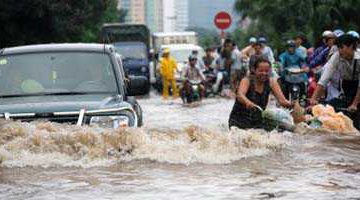
Water Health
Globally, for a wide range of diseases water represents either a major disease vector or has substantial control on the environmental conditions of disease hosts, in both cases having direct control of the spread of diseases and thus, public health. The Water and Health research theme therefore addresses the global challenge of analyzing the public health consequences of limited and unsafe access to clean and sufficient water resources as well as the spread and environmental controls of water-borne diseases. Responding to the emergence of recent concerns of critical health risks, a further focus of the research stream will be the investigation of hydrological control on the fate and transport of Antimicrobial Resistance (AMR) and Antimicrobial Resistance Genes (in particular through reclaimed waters) as well as water quality impacts on maternal-child health in LMIC.

Water Resources under Change
To evaluate how access to potable water resources as well as exposure to hydrological extremes will change in the future due to climate, land-use and management changes, this integral work-stream addresses 3 inter-connected, grand challenges: (i) Quantifying the nature and extent of change in hydrology and water resources, (ii) Explaining the causes of spatial and temporal patterns of change and, (iii) Reducing uncertainty of predictions of change. With its focus on extremes of water resource availability (flood, drought), as well as trends in water quality in response to their use, the outcomes of this work stream are of high relevance to all other work-streams in terms of understanding water availability (scarcity) and security.

Water Pollution
To tackle global challenges in water contamination, often caused by interactive impacts of multiple pollutants and building on existing core strengths at UoB, this research stream focuses in particular on the fate, transport and environmental impact of emerging pollutants (such as engineered nanoparticles, microplastics, pharmaceutical) and their interactions with legacy pollutants (such as excess nutrient concentrations, heavy metals, arsenic, organic compounds). Pioneering such integrative approach allows us to challenge current practice of single impact analysis and, for the first time, quantify the complex impacts of multi-stressor interactions on public and ecosystem health.
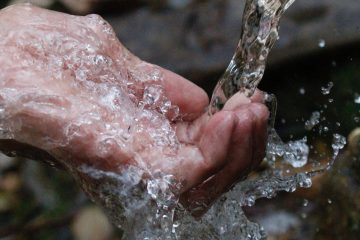
Water Justice and Socio-economic Consequences
This intrinsically interdisciplinary work stream investigates the economic and social implications of interrelated hydro-meteorological, water management and governance-related challenges in LMICs. The workstream considers the impact of land use and climate change on the socio-economic impacts of water extremes (flooding, droughts and contamination) and the relationship between water and technology (hydropower production and the impact on households, firms and farmers). We, therefore, develop adaptation and mitigation strategies, with a specific focus on water justice and resilience of LMIC economies, linking storm surge, wind field and hydrological modelling to socio-economic (agent-based) models.
Cross-Linking Themes
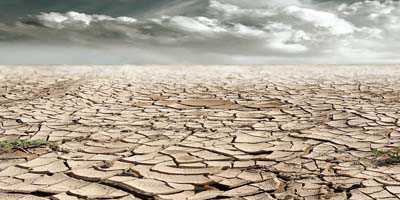
Sustainable Water Futures
Our rivers, lakes and wetlands (and the functions they provide) are at ever-increasing risk. Fundamental research is required to understand how the physical, hydrological, chemical and ecological aspects of freshwaters function and will respond to a range of future scenarios including the increased occurrence of floods and droughts and changes in water quality.
Research focus: physical, hydrological, chemical, ecological.
Wicked Water Challenges
The global population faces significant water security threats related to: water supply, water pollution, wastewater removal, sanitation and associated ill health and the socio-economic impacts of droughts and floods. Nowhere are these issues more acute than urban spaces and developing world contexts where radical new visions for water infrastructure and ways to cope with extreme events are required for a growing population.
Research focus: water infrastructure, water floods and business, water quality and health, dams and economics, flood management.
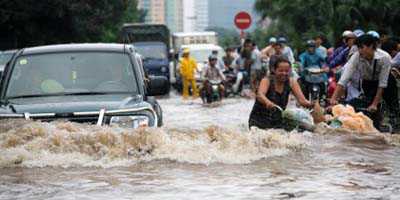

Integrated Water Solutions
Our research is essential to sustainably manage the supply and use of water, provide a healthy environment and enhance the resilience of ecosystems and people to water-related risks in a changing world. We have developed solutions to maintain essential natural capital, green infrastructure, biodiversity and ecosystem services for social and economic wellbeing. By developing ‘citizen science’ and cultural perspectives we ensure our research is relevant and actionable by local communities in the developed and developing world.
Research focus: water and cities, preparing for floods, adaptive governance, climate change.